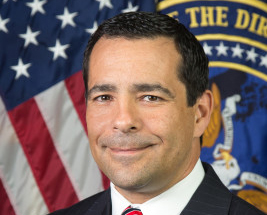 Exclusive
Exclusive Average pay for security clearance jobs down slightly since 2014
Despite all expectations, total average compensation for employees with security clearances has actually slightly declined, dropping 1.27 percent, since 2014.
Despite all expectations, total average compensation for employees with a security clearance has actually slightly declined, dropping 1.27 percent since 2014.
That’s what ClearanceJobs.com found in its 2017 survey of security-cleared professionals, according to a report released in June.
“Total compensation for security-cleared professionals has been steadily on the rise since the increased emphasis (and spending) on defense, intelligence, and homeland security as a result of 9/11. For this reason, the reduction in total compensation since 2014 is surprising,” the report said.
A number of factors fueled the incorrect expectations, including a decrease of about 30 percent in the population of security-cleared professionals since 2013, an increase in processing time for new clearances, which has resulted in an increase in the clearance backlog to about 570,000, and an increase in posted jobs on ClearanceJobs.com, from 6,000 to 20,000.
But the survey revealed another factor that may account for the unexpected decrease.
The proportion of security clearance levels held by respondents to the survey shifted toward the lower end of the spectrum. The higher level of clearance a professional holds, the more they usually get paid.
Comparing the results of the 2017 survey to the 2014 results reveals that the number of respondents with top-secret clearance was down by 5 percent, while respondents who held a secret clearance rose by 1 percent. The overall shift in the compensation of survey respondents pushes the aggregate compensation levels down.
The report also noted that this trend in the composition of survey respondents’ security clearance levels and compensation is likely indicative of a similar shift in the overall population of security-cleared professionals.
What you do, where you do it
What jobs clearance holders perform makes a difference, the report found.
The three highest paid job categories are systems engineering at an average total compensation of $118,865, IT software at $116,881 and business legal at $100,263.
The results also showed that certain sectors did see increases in average pay for clearance holders. The Energy Department demonstrated the highest increases, increasing the average base pay for security cleared professionals by 7.53 percent.
Clearance holders at intelligence agencies like the National Security Agency, Central Intelligence Agency and Federal Bureau of Investigations saw an increase in average base pay of 5.53 percent.
“It makes sense that candidates with an intelligence clearance are seeing their salaries increase. Many cybersecurity jobs require an intel clearance, and cybersecurity jobs outnumber cybersecurity candidates nearly two to one,” the report said.
In addition, the report noted that competition with the private sector could also be driving wage increases in certain sectors.
The two most frequent reasons for base pay increases were mandated raises and personal performance, both reported by 31 percent of the respondents.
Meanwhile, 76 percent of respondents who saw recent decreases in their base salary reported that a change in employer was the primary reason behind the drop.
Polygraphs
Another factor in the amount of money security-cleared personnel made is whether they’ve completed a polygraph test.
Those who have completed a full-scope polygraph have the highest average base pay at $92,449, although that amount is down almost 2 percent since 2014.
That full-scope polygraph is worth almost $20,000 per year, as the average base pay for security clearance holders who haven’t completed a polygraph test is $73,306.
Career Level
Experience and career level factor into the equation as well.
Senior executives have seen the highest drop in base pay, down 4.26 percent for an average of $131,602. Most other career levels saw drops between 1 and 2 percent as well.
However, at the lower end of the spectrum, students and entry level cleared professionals have seen upticks in their salaries. Students saw a 2.67 percent bump in average base pay, while entry-level positions saw 2.39 percent.
Copyright © 2024 Federal News Network. All rights reserved. This website is not intended for users located within the European Economic Area.
Daisy Thornton is Federal News Network’s digital managing editor. In addition to her editing responsibilities, she covers federal management, workforce and technology issues. She is also the commentary editor; email her your letters to the editor and pitches for contributed bylines.
Follow @dthorntonWFED
Related Stories





